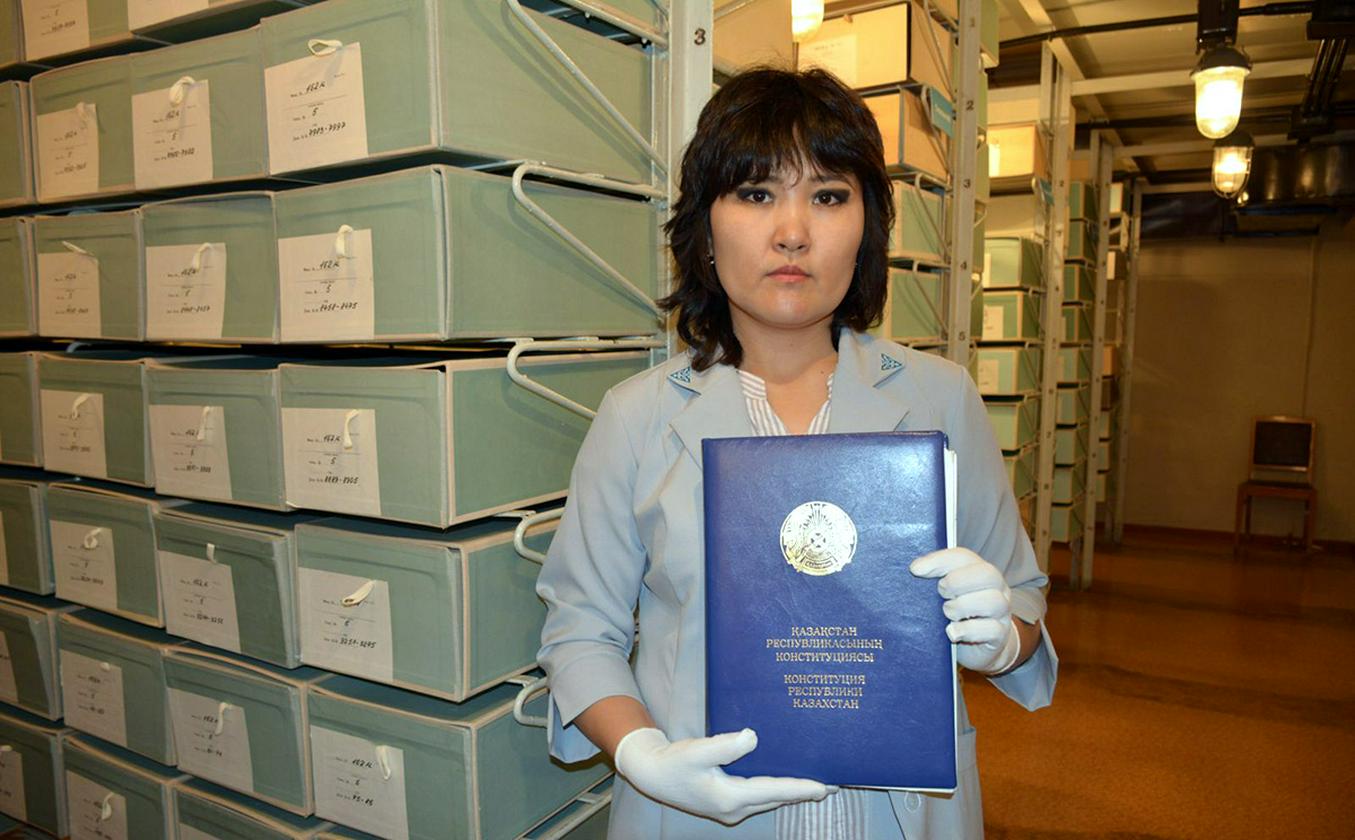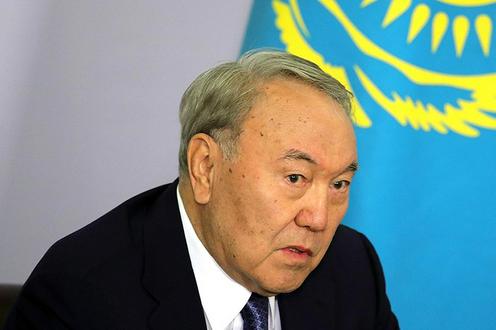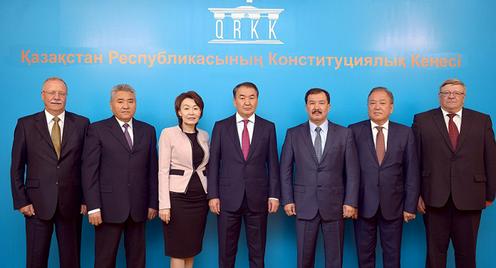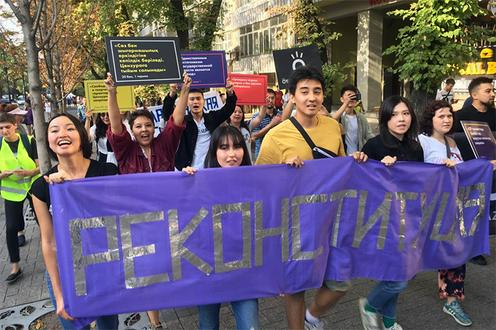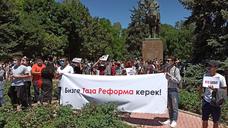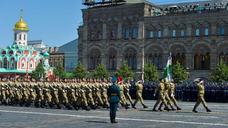Kazakhstan promulgated its constitution on the 30 August 1995. In the almost quarter century that has passed since then, the fundamental laws of the country have been amended more than once – some articles have been removed, others introduced. With the help of experts, Fergana’s correspondent takes a look at how and why these changes occurred and who it was that profited from them.
From the first to the second
Since obtaining independence, Kazakhstan has had two constitutions. The first was adopted in 1993. In it were enshrined a number of key legal provisions: national sovereignty, state independence, the principle of the tripartite separation of powers, recognition of Kazakh as the official language of government and the president as head of state, and so on. At the heart of the 1993 document lay the parliamentary republican model. This constitution became known as the “Abdildin Constitution”, in honour of Serikbolsyn Abdildin, Nursultan Nazarbayev’s main rival in the 1999 presidential elections.
In the first version of the document, the Supreme Council was named as the country’s sole legislative body and highest representative organ. It was given the authority to amend the constitution, to enact and interpret laws and to monitor their execution, to alter the country’s borders, to approve, alter and scrutinise the state budget – in short, it was endowed with wide powers. It may be hard to believe today, but at the time the country’s president was accountable to the Supreme Council and even reported back to its deputies.
This state of affairs, however, did not last long: criticisms were raised about unclear boundaries of authority between the legislative and executive branches of government. This was claimed to complicate efforts to stabilise the political and social situation in the country. In 1995, the then head of state Nursultan Nazarbayev formed a committee to work on drafting a new constitution. In the spring of that year, the President himself personally scoured the constitutions of 20 countries of Europe, Asia and the Americas in search, as he later put it, “of provisions suitable for our polity”.
A national referendum was then announced. According to the official account, the adoption of the new basic law was preceded by widespread public discussion of the project. It was stated that more than 3 million citizens had participated. During the discussions, so the government claims, over 30 thousand proposals and comments were aired. In the end more than 1100 amendments and additions were made to 55 articles of the constitution. However, the official version has its detractors. “Clearly, in the space of just one month (from 28 July to 30 August), the Kazakh people could not possibly study, discuss and implement any amendments to the fundamental laws of the country. The educational level and political maturity of the Kazakh population at that time was not sufficiently high,” pointed out Zauresh Battalova, chairwoman of the Foundation for the Development of Parliamentarianism, in an interview to The-steppe.
Nonetheless, on 30 August 1995, the second constitution was adopted. In it, the extensive functions and wide powers of parliament were transferred to the president, and the all-powerful Supreme Council was liquidated. In addition to this, parliament lost its supervisory functions, and a part of its legislative authority was handed over to the president and the government. The Constitutional Court and the Court of Arbitration were abolished.
At the same time, some regulations of significance were carried over into the second constitution. One such example was the provision that one and the same individual may not occupy the post of president for longer than two terms. Another was that those aged 65 and over could not run for president.
Presidential term extended
After three years of quiet, attacks on the constitution resumed once again. First off in 1998, with the amendment of article 19. Among other things, this amendment established the rule that ten deputies of the Mazhilis (the lower house of parliament) were to be nominated by proportional representation from party lists. “The proportional system in Kazakhstan essentially means centralised control through lists of candidates. It is based in part on the regions, but priority is given to the centralised selection of candidates under the supervision of the president. In other words, the crucial factor is the candidate’s loyalty and service to the president, rather than the needs and demands of the regions. This distorts the concept of representation in favour of the interests of the party, of the president. For this reason parliament became an appendage of presidential power,” concludes political scientist Dimash Alzhanov.
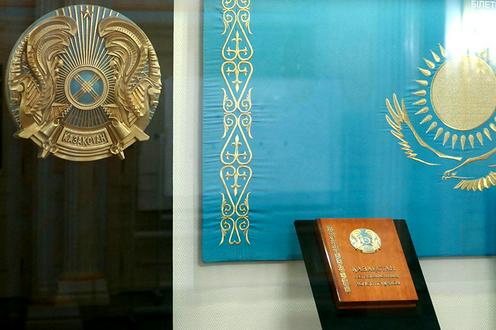 Copy of the constitution in the Library of the First President of Kazakhstan. Photo from the site Today.kz
Copy of the constitution in the Library of the First President of Kazakhstan. Photo from the site Today.kz
But the most important of the 1998 amendments was that affecting the term of presidency, which was increased from 5 to 7 years “in order to create the necessary conditions to set the country firmly on the path of sustained economic and political development”. In addition, the age limit of 65 for presidential candidates was abolished (by the time of the next elections, scheduled for 2006, Nazarbayev would turn 66). A few months after the amendments were enacted, presidential elections took place.
Then in June 2000, the Constitutional Council declared that the rule barring the same individual from being elected president of Kazakhstan for more than two consecutive terms “does not cover any person who occupied the position of President of the Kazakh SSR and Republic of Kazakhstan before being elected to this post on the 10 January 1999”. In other words, the Constitutional Council ruled that Nazarbayev’s first term should not be counted as beginning in 1991, but rather in 1999.
Reduced term, but extended privileges
The next significant amendment to the country’s fundamental laws was carried out in May 2007. The presidential term was reduced from 7 back down to 5 years, but it was stressed that this change would come into force after the following elections, scheduled for 2012. At the same time, the rule that “one and the same individual may not be elected president of the republic for more than two consecutive terms” was modified to include the words: “the aforementioned limitation is not applicable to the first president”.
Official statements accompanying the amendments explained that they were the work of 90 Mazhilis deputies. “As can be seen, over three quarters of the members of both chambers of parliament enacted the will of their constituents, who insisted on offering N. A. Nazarbayev the opportunity to continue his political reform of the country,” – these were the words used in the accompanying document.
Prior to the amendments, the country’s president was not formally allowed to be active in any political party during his term of power. In 2007 this regulation was removed. From that time on, Nursultan Nazarbayev has headed the “Nur Otan” Party, which includes among its members virtually all of the country’s key officials and deputies.
Following the constitutional amendments of 2007, the president himself personally appoints the ministers in charge of foreign affairs, defence, internal affairs and justice. The head of state’s authority to initiate new legislation has also been bolstered. Prior to this, such a right was exclusively held by parliamentary deputies and the government.
On top of this, in the paragraph which stated that the president can be chosen from among citizens by birth of the Kazakh Republic, no younger than 40 years old, who are able to speak the official state language fluently and have lived in Kazakhstan for no less than fifteen years, the words “no less than fifteen years” were replaced by “the last fifteen years”. By some accounts, this was done in order to block émigré officials and oligarchs from staking a claim to the country’s leadership.
A transition to a proportional electoral system was also effected, while the Assembly of People of Kazakhstan was granted constitutional status and the right to delegate representatives to the national parliament.
As well as all this, the name of the capital – Astana – was inscribed into the constitution, since at the time of the promulgation of the Constitution of 1995, the country’s capital had been Almaty. Jumping ahead a little, it is worth noting that it was precisely this point which created a legal obstacle to the renaming of Astana to Nur-Sultan.
The 2007 amendments also did away with a paragraph prohibiting the merging of civic and governmental institutions. This was justified with the fact that significant progress had been made in the formation and functioning of political parties, and special reference was made to “Nur Otan”, which had become the leading political force in the country, poised to integrate itself into the state machinery.
Finally, a paragraph was inserted into the Kazakh constitution permitting state financing of civic organisations. Thus arose the phenomenon of juicy “state procurement” deals for various types of civil society and commercial organisations – the media included – to contend over.
Elevation of the Security Council
The constitution was altered once again in 2011. In February of that year, the following formulation was added: “Extraordinary presidential elections are announced by a decision of the president of the republic and are conducted in the manner and period designated by constitutional law”. The very same month extraordinary presidential elections were declared for April that year. Another amendment awarded Nazarbayev the title “Elbasi” (leader of the nation).
In March 2017, a regulation was inserted into the constitution, stripping citizenship from those found guilty of committing terrorist acts, or in any other way inflicting serious harm to Kazakhstan’s vital interests. Admittedly, to date no clarifications have been forthcoming as to exactly what actions might constitute such “serious harm”, or how and by whom such cases are to be determined. Amendments were also made allowing the establishment of a special legal regime for financial affairs within the city limits of Astana (the Astana International Financial Centre).
Yet again, constitutional reform did not spare provisions relating to the head of state. This time a clause was added requiring that the president of the country possess some form of higher education. Of no small import were amendments concerning the Security Council. It was made the country’s principal constitutional organ – until then it had merely been an advisory body.
All of these amendments were introduced without a referendum. At the time, Nazarbayev explained this in the following way: “There is no need to carry out a referendum, with all the great expense of time and money it entails, and to raise political problems and issues in society”.
Council or court
Besides the constitution itself, a number of regulations necessary for the execution of the above amendments were added to the country’s constitutional laws. For example, one of the electoral laws was supplemented with the requirement that presidential candidates possess at least 5 years’ experience of government service. Another constitutional law “On the First President of the Republic of Kazakhstan – the Elbasi”, allows Nursultan Nazarbayev to chair the Security Council for life. He and his family are also exempt from criminal responsibility. They are guaranteed bank secrecy and the immunity of their bank accounts. And defiling images of the first president of Kazakhstan, publicly insulting him and distorting the facts of his biography are all criminal offences.
A not insignificant role in these constitutional amendments has been played by the Constitutional Council. This state organ is not part of the court system; it ensures the supremacy of the constitution as the fundamental law of the government across the whole territory of Kazakhstan and determines the conformity of new laws to the constitution. According to its statutes, the Council is independent from state institutions, non-state organisations, civil servants and citizens. On several occasions, significant amendments to the constitution have caused a storm among the public, but each time the Council has given its approval. Such was also the case in March of this year, when Kassym-Jomart Tokayev proposed to rename Astana to Nur-Sultan.
A number of legal experts point out that the Constitutional Council offers little to the population of Kazakhstan, since citizens of the country have no means of appealing to it. In this respect the Constitutional Court which existed prior to the Constitutional Council was of far greater benefit to the public. “Constitutional and other legal amendments that are made do not always promote the rights and freedoms of citizens. Yet the essence of any law should of course be that it helps people to exercise their rights, is just, and, above all, is consonant with logic and good sense. In Russia, a constitutional court has been established which determines the conformity of laws to the constitution. And this is correct – only an independent judicial power should determine this conformity”, says lawyer Bauyrzhan Azanov.
A constitution divorced from real life
According to Azanov, the current constitution is not reflected in actual legal and public service praxis, and for this reason it is very difficult even for citizens to assert rights guaranteed within it, from receiving free medication and education to the public expression of opinions. “In order to get any kind of help or service, citizens have to overcome a huge number of obstacles, set in their way by officials who in turn cite various laws and regulations. It needs to be clearly understood that the constitution is above all other laws. But for some reason its articles constantly refer to other laws. I have read through the constitutions of France and USA – they have no such external references. There it is clearly written what rights citizens possess and that’s it. And these norms are then put into action,” says Azanov.
For example, article 32 of the constitution reads as follows: “Citizens of the Republic of Kazakhstan have the right to peaceful assembly without arms; to hold public meetings, demonstrations, processions and pickets. The exercise of this right may be restricted by law in the interests of state security, social order, the preservation of public health, and the protection of the rights and freedoms of other individuals”. Under the pretext of “security” and “social order”, the government almost always denies permission for peaceful gatherings, citing laws restricting constitutional rights.
“In the case of our constitution, we can see that the rights protected by the constitution, guaranteeing full legal force to fundamental freedoms and human rights, are in reality limited by subsidiary legislation. For this reason, the guaranties enshrined in the constitution frequently take on a declarative character only, because rights need to be guaranteed – in other words supported by a mechanism for their realisation and the monitoring of their observance,” explains human rights activist Erlan Kaliyev.
Besides the issue of the right to peaceful public assembly, Kazakhs are sometimes refused permission to leave the country on the grounds of banking arrears and other debts, in spite of the fact that freedom of entry and exit into and out of the republic are guaranteed under article 21 of the country’s fundamental laws.
Lawyers and human rights activists point out that, within the country itself, the supremacy of the constitution over other laws is not subject to debate. But in actual practice even routine decrees of town councils (maslixat) can take precedence. “In Kazakhstan, citizens effectively lost the right to carry out demonstrations and processions from the moment town council decrees started to be enacted designating specific locations for large-scale meetings. In Almaty this is a single location behind the Saryarka cinema. But processions can’t be held in one place, the whole point of them is that they move,” observes the director of the Kazakh International Bureau for Human Rights, Yevgeny Zhovtis.
Waiting for change
“The current constitution provides the basis for authoritarian government. For this reason reform is necessary and must encompass a fundamental review of the role of the president and switch to a parliamentary form [of government] with a separation of powers. The president cannot be above the constitutional structure. And the constitution itself must observe the principle of the separation of powers and guarantee the independence of the judiciary,” suggests Dimash Alzhanov, member of the movement “Oyan Qazaqstan!”.
This organisation has declared the necessity of constitutional change and made public its vision of reform. In addition to this, the movement’s activists carried out a march through the streets of Almaty in support of these reforms on 30 August.
Lawyer Dzhokhar Utebekov, too, observes that the present constitution reinforces the authoritarian regime, something hardly conducive to the implementation of the human rights which are also enshrined within it. He also argues for supplementing it with a number of key clauses. “Not all of the constitutional rights of the citizen are currently protected. The choices are pretty simple. In terms of human rights, I would add to the constitution such things as freedom of expression, freedom of environmental information, a notification [rather than permit] system for public gatherings, abolition of the death penalty, a ban on discrimination on the basis of sexual orientation, the requirement for a court order for phone tapping, and a guarantee of state defence of intellectual property,” says Utebekov.
While the public waits for reform, it remains to note that it is not only in its practical implementation that the constitution is not especially favourable to the citizen, but also on paper. A quick content analysis shows that the most popular words in the text of the constitution are “republic”, “law” and “president”. The word “right” is not among the top five. And the words “person”, “citizen” and “people” do not even make it into the top ten.
Bagdat Asylbek
-
 23 December23.12PhotoTokyo DriveJapan to invest about $20 billion in projects across Central Asia over five years
23 December23.12PhotoTokyo DriveJapan to invest about $20 billion in projects across Central Asia over five years -
 17 December17.12Sake for SixCentral Asia’s Rapprochement with Japan Comes with Hidden Pitfalls
17 December17.12Sake for SixCentral Asia’s Rapprochement with Japan Comes with Hidden Pitfalls -
 24 November24.11Here’s a New TurnRussian Scientists Revive the Plan to Irrigate Central Asia Using Siberian Rivers
24 November24.11Here’s a New TurnRussian Scientists Revive the Plan to Irrigate Central Asia Using Siberian Rivers -
 22 October22.10Older Than the Eternal CityWhat has Samarkand accomplished in its three thousand years of existence?
22 October22.10Older Than the Eternal CityWhat has Samarkand accomplished in its three thousand years of existence? -
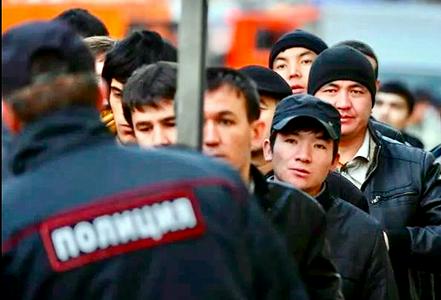 16 October16.10Digital Oversight and Targeted RecruitmentRussia Approves New Migration Policy for 2026–2030
16 October16.10Digital Oversight and Targeted RecruitmentRussia Approves New Migration Policy for 2026–2030 -
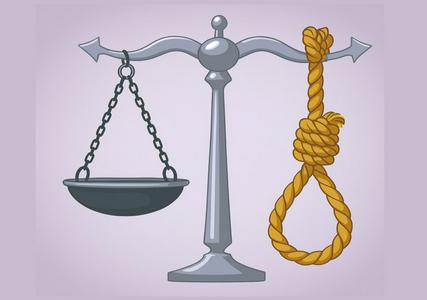 15 October15.10A Step Back into the Middle AgesWhy Kyrgyzstan Should Not Reinstate the Death Penalty
15 October15.10A Step Back into the Middle AgesWhy Kyrgyzstan Should Not Reinstate the Death Penalty
